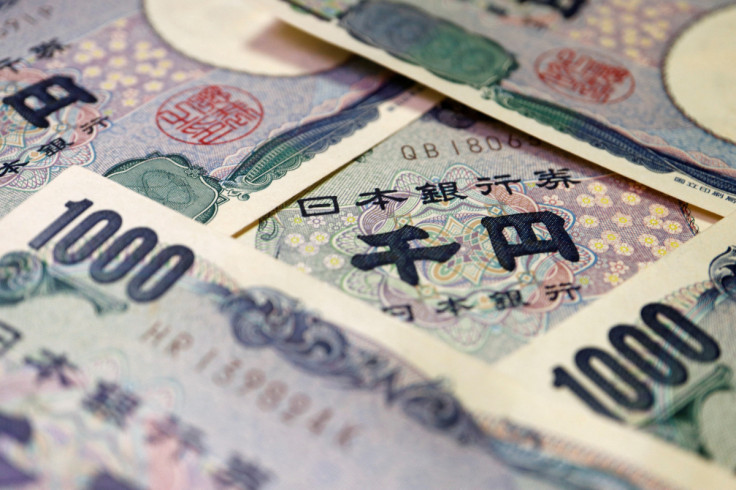Japanese Foreign Currency Deposits Rise At Fastest Rate Since 2015

Japanese retail foreign currency deposits have jumped this year as local investors switch out of a weakening yen and zero-yielding local bond markets and into overseas markets with rising yields.
Bank of Japan data shows foreign currency deposits at domestic banks surged to 26.58 trillion yen ($182.38 billion) at the end of August, an 8.3% rise since the start of the year.
That increase in deposits in the first eight months of this year was the highest since 2015, the data showed.
While other major central banks have hiked their interest rates this year to tackle inflation, the Bank of Japan has stuck to its ultra-loose monetary policy, keeping 10-year yields anchored to zero.
Spreads between Japan's 10-year government bonds and U.S. Treasuries are near 4 percentage points.
"Foreign-currency deposits, a focus for relatively long-term investment, increased along with yen depreciation this year and may have contributed to an extent to this year's decline in the yen," said Lhamsuren Sharavdemberel, an analyst at Barclays Bank, in a report.
"Most of the increase, of course, is attributable to the change in valuations due to the weaker yen," he said. But there was a big increase even after adjusting for nominal exchange rate changes in the yen, he said.
Foreign exchange margin trades, in which retail investors can borrow up to 25 times their cash as leverage, have also seen a boost this year. Margin trading volume touched a record high of 1,229 trillion yen in June. In August, the trading volume was a little lower at 1,159 trillion yen.
The value of long dollar positions retail investors held at the end of July was 3.07 trillion yen, the biggest since January 2015.
Analysts expect a further rise in foreign currency deposits, given the yen's extended weakness and as Japanese investors look for ways to deploy idle assets. Households held a record 1,102 trillion yen in cash and deposits at the end of June.
This rise in interest in foreign currency deposits comes at a time when the yen is trading at 24-year lows, and the BOJ is trying hard to stem its decline.
Japan's foreign reserves fell to $1.238 trillion at the end of September as a result of the government's dollar-selling intervention during the month to arrest a sharp decline in the yen, Ministry of Finance data showed on Friday.
"The lack of any conspicuous profit-taking along with the sustained rise in deposits even as the yen has dropped in value arguably indicates anew that the preference for foreign currency deposits remains firm in the face of the widening spread between domestic and foreign yields," said Barclays' Sharavdemberel.
($1 = 145.7400 yen)

© Copyright Thomson Reuters 2024. All rights reserved.




















